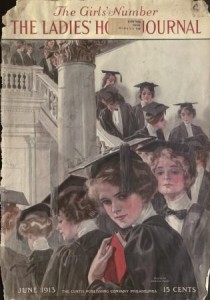CALL FOR PAPERS – INVITATION
 15th International Symposium on School Life and School History Museums
15th International Symposium on School Life and School History Museums
& Collections
Creating links in education. Teachers and their associations as
promoters of pedagogic development (historical and museum aspects)
Povezovanje v šolstvu / Vernetzung im Bereich Bildung / Conexiones en
la Educación
Organised by Slovenian School Museum, Historical Association of
Slovenia and ICOM- Slovenia
Ljubljana (Slovenia), 26th – 29th June 2013
Deadline for the proposal of abstacts submission: 20th January 2013
Symposium web-site http://www.ssolski-muzej.si/slo/symposium2013.php
– The aim of the symposium, which connects school museums and
researchers into the history of education, is to present and explore
the professional historical contribution of male and women teachers
and particularly their associations to the development of schools and
pedagogy, as well as to cultural and general development. Teacher
associations united the teaching profession in the establishment of
their (trade union) interests, had a significant influence on the
development of teacher education (including their adult and continuing
education) and, through teaching and educational publications of
different ideological orientations, helped to shape the development of
education. Teachers’ gatherings, publishing activities and the
appearance of school museums were among the most important forms of
activity.
– Teacher associations and their regional, national (ethnic), state
and international connections went beyond the local importance of
frequently very diverse activities. They were marked in particular by
individual teachers who were important for a particular village, town
or wider region. Through changes that took place over time, we can
also discern the differing importance attributed to the teaching
profession, which is why we also encourage comparative analyses of the
role of teachers and their associations. Contributions offering an
overview of a wider region or even a whole country are particularly
welcome, as are presentations and analyses of archive and museum
material and, above all, insights into our museums through an analysis
of exhibitions on this subject.
– The theme of teachers, teacher associations and their work and other
connections in education is directed at specialists working in museums
both large and small and in other collections related to school and
education, as well as at researchers and lecturers who are involved in
the history of education at universities, institutes and in archives.
-The presentation of museological news of the family of education /
school museums and successful museum projects regards to the history
of education are welcome.
– The working language of the conference is English. Paper
presentations should last between 15-20 minutes, including 3-5 minutes
discussions after presentation atplenary sessions and 90-minute
parallel sections.
– The “Babel Section”: Only one 90-minute session of the parallel
sections (each with a maximum of 4 to 5 presentations) will take place
in three groups for participants from the Germanic, Romance and Slavic
language areas in one of these languages.
Please note that the ‘Babel Section’ is designed first of all for the
colleagues who work at small school museums without earlier
experiences with English, the lingua franca of the modern era.
________________________________
Symposium:
Programme: Wednesday, 26 June 2013 Opening at 16:00 hrs.
Thursday, 27 June and Friday, 28 June 2013 full day programme with
lectures and workshops.
Saturday, 29 June lectures and workshops, in the early afternoon
official conclusion of the symposium, optional excursion.
For all details (conference fee, accomodation, venue, scientific
committee, post symposium publication) see: detailed Call for papers
(in English) –http://www.ssolski-muzej.si/slo/symposium2013.php
The proposals of abstracts (in English!) should be sent to the following
e-mail
by 20th January 2013: 2013symposium15@gmail.com
Notification of acceptance by Programme & Scientific Committee : 20th
February 2013
Responsible coordinator:
Dr. Branko Šuštar (Slovenian School Museum, Ljubljana)
branko.sustar@guest.arnes.si
Contact post-address: 15th Symposium 2013, Slovenski šolski muzej /
Slovenian School Museum, Plečnikov trg 1, 1000 Ljubljana, Slovenia;
www.ssolski-muzej.si
Contact e-mail: 2013symposium15@gmail.com
LOOKING FORWARD TO WELCOME YOU IN LJUBLJANA
Organising Committee of 15th Symposium 2013
 The Education, Knowledge Production and Science Studies Network invites you
The Education, Knowledge Production and Science Studies Network invites you


